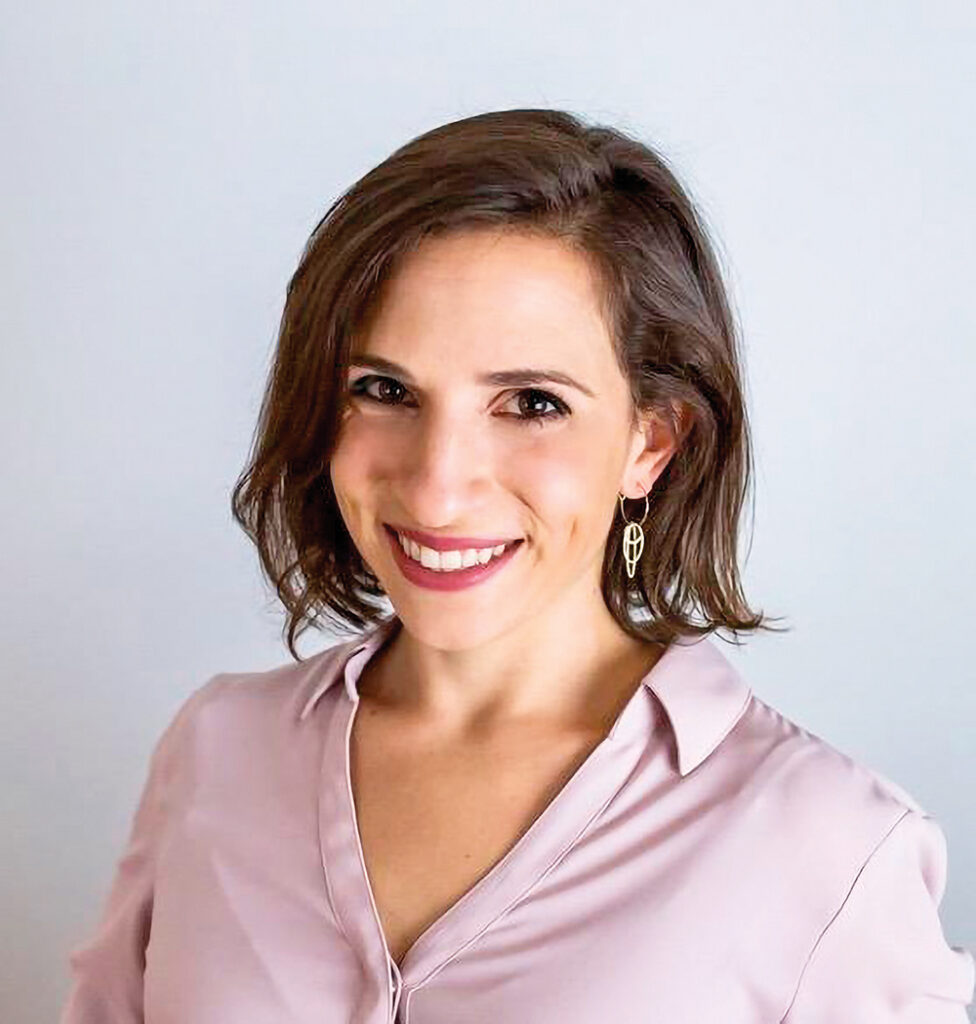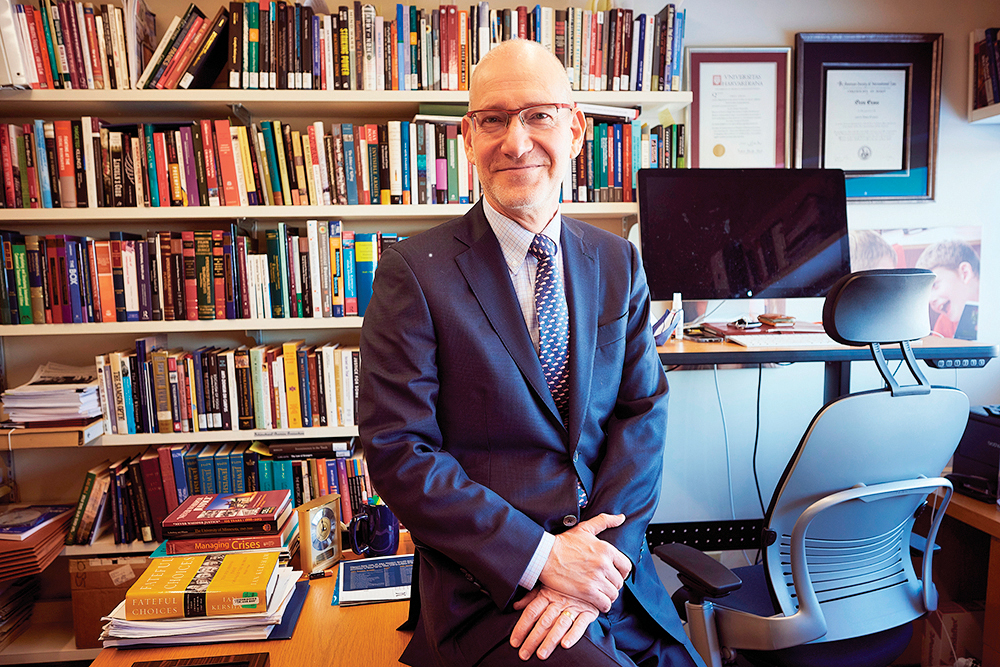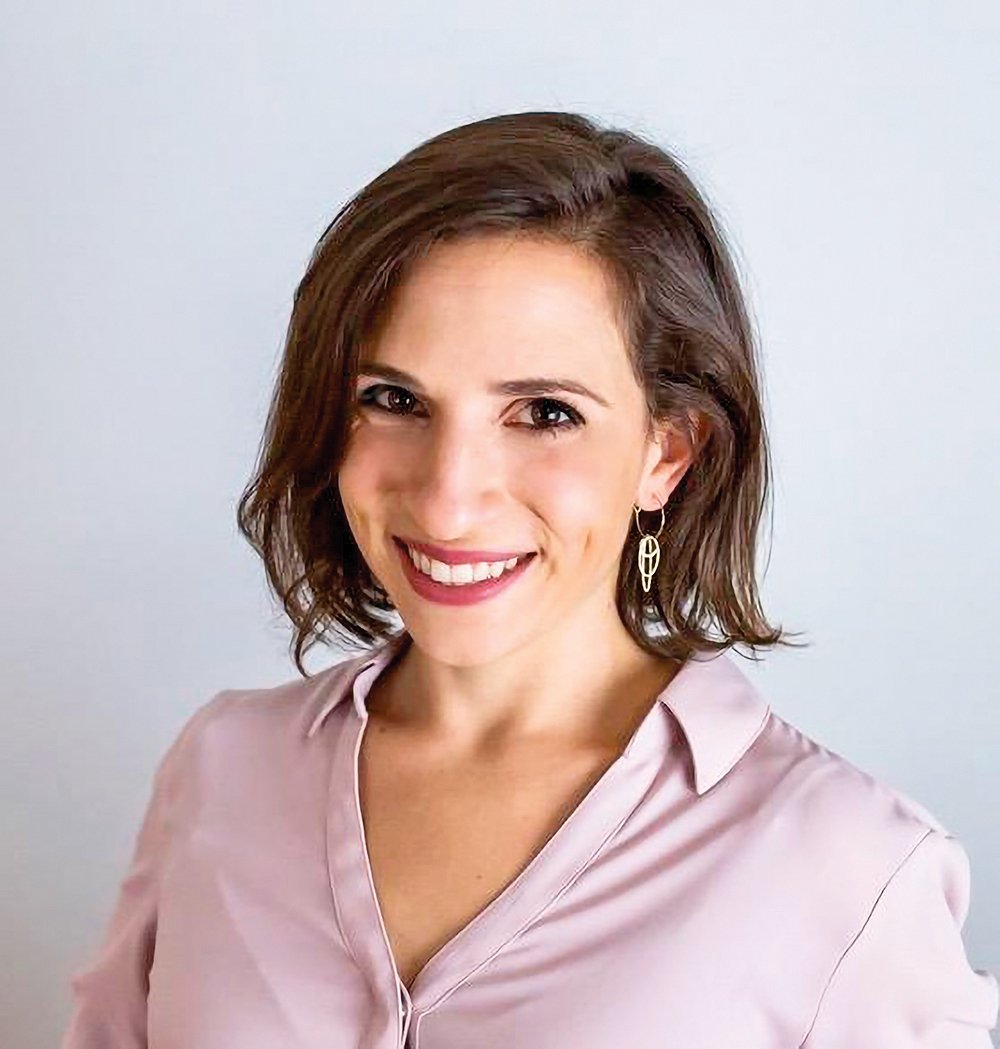
(Courtesy of Touro University) Touro University held a “Touro Talks” panel discussion as part of its series on antisemitism on college campuses last week, drawing hundreds of participants from the U.S. and around the world.
President Dr. Alan Kadish led two students and two professors through an hour-long discussion about their personal experiences and observations on their campuses in the aftermath of the Oct. 7 attack. The program was co-sponsored with Touro’s Jewish Law Institute and co-led by Professor Sam Levine of the Institute.
Fear, Hopelessness, Trauma
“I’m seeing people who are feeling scared and hopeless. I’m seeing trauma, a lot of it. People who are afraid to leave their dorms. I see people who are afraid of being Jewish; people who need to decide between safety and Jewish identity,” said Dr. Miri Bar-Halpern, a psychologist and clinical instructor at the Harvard Medical School who treats students at a clinic.
Talia Segal, a biomedical engineering senior at Georgia Tech who is president of Hillel and a member of its Israel Leadership Network, described her campus as “historically apolitical” and said there have not been the “more extreme protests” or encampments that have occurred elsewhere.
“But even here we’ve seen protests where Hamas and Hezbollah were praised. We shrugged it off because we knew things could be so much worse, but to be okay with that is pretty absurd,” said Segal, adding that students haven’t felt physically unsafe and many are constantly on edge. “We’re not sure who we can talk to, about what. We’ve been pushed out of certain communities where we once found peace and friendships.”

Violence and Harassment
In contrast, at Columbia University, where protests and encampments have drawn worldwide media attention, graduating law student Marie-Alice Legrand described a different scenario.
“The situation is deteriorating and I’m observing a very steady normalization of violence, both in words and physical violence and harassment,” she said.
LeGrand is president of a campus organization, Law Students Against Antisemitism, which she founded after Oct. 7 to provide education on antisemitism. She detailed a struggle to obtain recognition and funding from the student senate, saying “they outrightly supported Hamas without any ambiguity, showing pictures of Hamas logos on their phones, calling for genocide, until eventually the entire situation escalated and they decided to take over Hamilton Hall and to hold a janitor hostage.”
Oren Gross, associate dean and professor of law at the University of Minnesota, speaking as a Jewish leader and Zionist, debunked arguments put forward on his campus that protests are peaceful expressions of free speech.
“Seeing what’s happening at Minnesota and at other universities, this is anything but peaceful. Maybe no immediate violence is taking place – though at some places such as Columbia we’ve seen violence – but there’s hateful, threatening rhetoric and they’re threatening actions.”
Gross cited publicly displayed the messages on campus that praise the Intifada; declaring “nothing but hate for Israel and Zionism and death to Zionism, and expressing that solidarity means attack by any means necessary under an image of an armed trigger.”
Why Has This Gotten So Bad?
Dr. Kadish engaged the panelists in a discussion of the reasons for the unrest, “We’ve been pretty lucky at Touro, but at many other campuses there have been protests, hateful comments, certainly an atmosphere of fear and intimidation. Why has this gotten so bad?”
The group noted lack of education and understanding of history, and failure to listen to one another and enforce rules. Legrand blamed post-colonial studies that espouse “a world view that divides the world into the oppressed and the oppressor, reserving humanity only for specific groups of people who meet the criteria of ‘righteous person’ or most oppressed.”
Bar-Halpern cited failures to grapple with issues beyond “the snap of a headline, a TikTok. Nobody is doing the deep dive, the digging in to really understand. This is a complex topic. People are just following the leader and whoever is louder and yelling, that’s the voice you’re going to hear.” She called on universities to protect students.
Segal agreed students need to be protected, and protestors need to be held accountable. “If someone is going to chant ‘From the river to the sea…’ they need to know what that phrase actually means. Finding a way to hold students accountable and actually teach them about antisemitism and the weight of the words they’re using is really important.”
Gross noted restrictions to exercising free speech under the First Amendment. “It does not include a heckler’s veto. It doesn’t mean you can vandalize property, break codes of conduct and university rules. There is a place for balancing,” he said.










